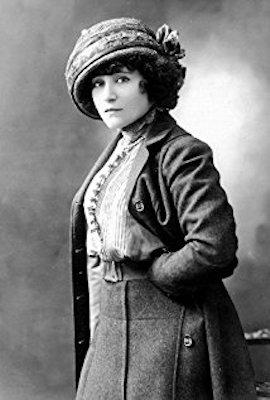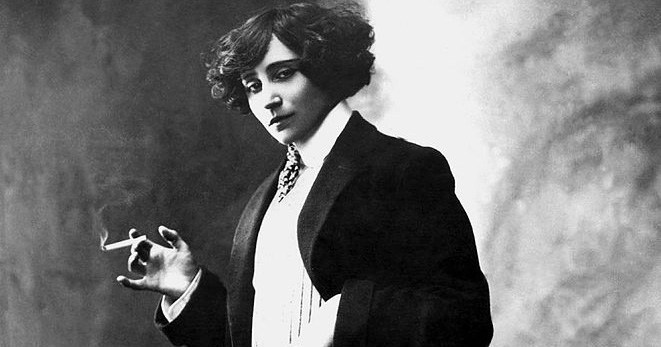Recently I watched the film adaptation of Colette’s life, unsurprisingly titled Colette, and was inspired to write about her, mainly because before watching the film I had no idea she even existed, as I’m sure is the case for the large majority of people.
Born in 1873 in a small town in Burgundy, Colette was a woman hindered by her times, as her young adulthood and first marriage shows: married to the French writer “Willy”, her first four novels, which were semi-autobiographical and very famous, following the life of a girl called Claudine, were published under his name. When Colette tried to have her name associated with them, her husband refused, and would lock her in her room until she produced more pages for him. I bet we all hate him by now (if not you really should!), and I will try not to repeat his name again. No need to give him more fame than he already has (had).
After her separation and subsequent divorce from her first husband, Colette’s life only got more interesting—how could it not? At first she began a stage career in music halls across the country, performing as a mime and acting with her friend and lover Matidle de Morny, Napoleon III’s niece and infamous for wearing men’s clothes. She also kept writing, producing novels and plays, and devoting herself to journalism during the First World War. She returned again and again to the theme of women’s independence in a male-dominated society, which can be seen in perhaps her most well-known work, Gigi, in which the main character marries the man to whom her family had groomed her for as a lover.
During her long life, she wrote over 30 novels, married three times, had a long list of lovers, had one daughter, and most significantly, was nominated for the Nobel Prize in Literature in 1948. Today she is recognized as one of France’s most prestigious writers and was the first woman to be given a state funeral, although she gets little to no attention, probably because of her gender.
The film adaptation shows her progression from a dependent woman to one who takes her power back and claims it all for herself. A woman who loves who and how she wants, and does not conform to social norms, something that was extremely difficult to do in the time in which she lived. The film, and also other articles I’ve about it and her, although true to life, tend to focus on the most salacious parts—her love life. I wanted to give a fuller picture of this revolutionary woman who lived a groundbreaking life, mainly because she lived it how she wanted to, and not how society dictated it should be lived.

